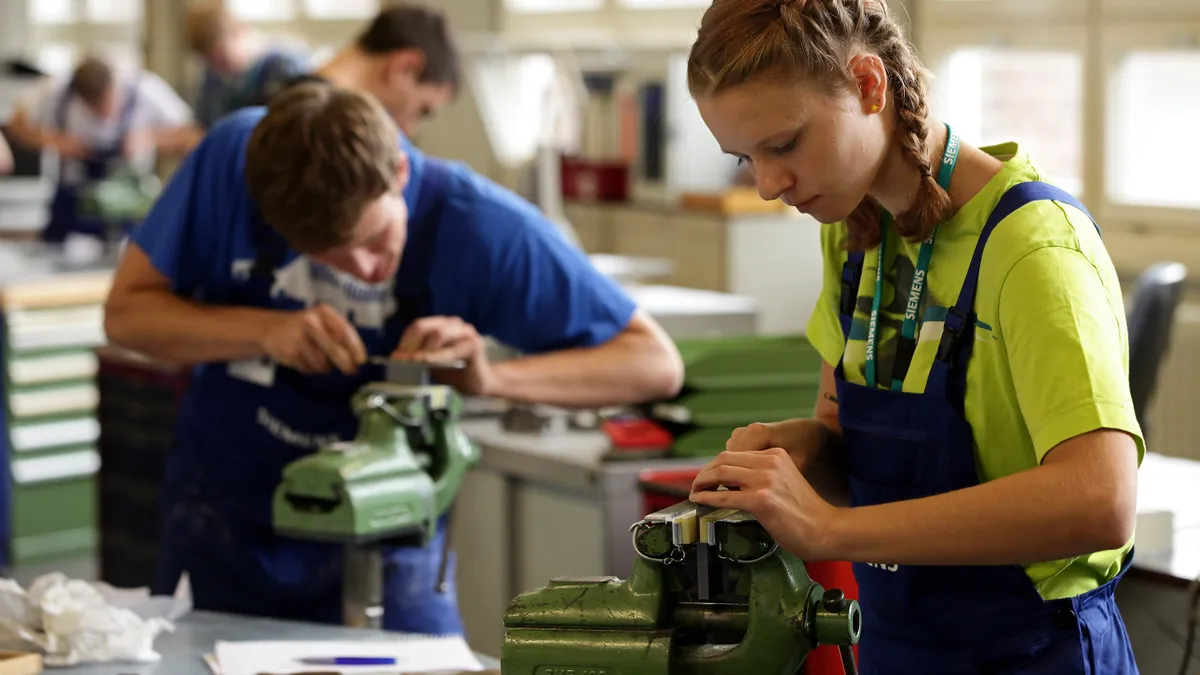Dive Brief:
-
For students who don’t see college as their best pathway, career and technical education opportunities can offer training that allows them access to competitive, potentially higher-paying positions right after high school.
-
The Virginia Board of Education, for example, recently adopted new state CTE requirements that give more flexibility to districts by allowing them to defer to state standards over national ones.
-
“Over the past 5 to 10 years, we’ve seen tremendous interest in CTE programs,” Alisha Hyslop, chief policy, research, and content officer for the Association for Career & Technical Education, said of state legislatures’ prioritizing of these opportunities.
Dive Insight:
Hyslop says any student can benefit from CTE options, regardless of whether they’re choosing to extend their education after high school graduation. Classes that provide some exposure to potential fields — and the details learners may encounter — before they leave K-12 may open the door to further interests or help them learn more about future job pursuits.
“After the first time they take someone’s blood pressure or pretend to give a mannequin an injection, maybe they’ll decide they want to pursue a different science career,” she said. “That career exploration is an important part of high school.”
Artificial intelligence — and how it may change opportunities for students — is of particular interest to ACTE’s members, said Hyslop, noting that at its national conference in early December in Phoenix, a session on AI was “standing room only.”
“Anything science, technology, and engineering-related is going to have a connection to AI and a lot of other careers too,” she said. “So CTE programs need to shift to prepare students for jobs in that industry.”
Ultimately, Hyslop said, career training can also help students heading for college by giving them career experience and, potentially, a jumpstart while still in high school, saving them both time and money on training. That also offers learners a chance to earn extra money while in college if they choose, she said.
“We know that many students have to work while in college or want to work because having a part-time job gives you a leg up when you want to enter the workforce full time,” Hyslop said.













